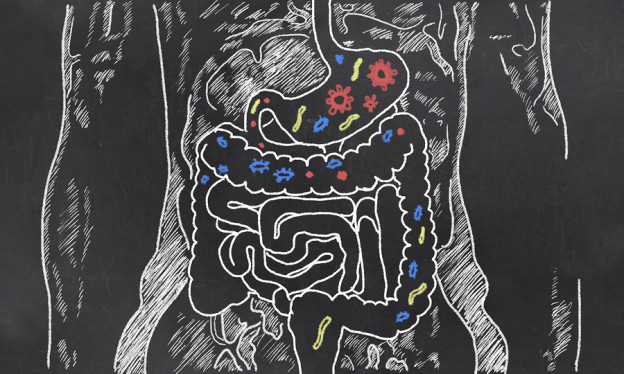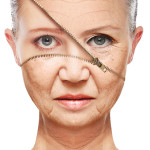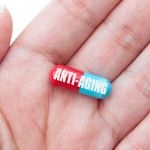By David Blyweiss, M.D., Advanced Natural Wellness
November 18, 2015
- How to fast without starving
- Trigger this ancient cellular cleansing mechanism
- Then kick it into overdrive
If there’s one thing that can strike terror into the hearts of food-lovers, it’s the word “fasting.” Nobody really wants to do it. But a surprising number of people ask me how it should be done.
Well, here’s a surprise. You don’t have go on a juice diet for three to seven days to get the anti-aging benefits of a fast. You don’t even have to starve yourself or cut calories. And it’s something you can easily do.
Let me explain…
The first meal you eat each day is probably breakfast, which literally means “break the fast.” But if you had a snack or ate dinner shortly before you went to sleep the night before, you’re not really breaking the fast. That’s because you never had one to start with.
Open your arteries, improve blood flow for a new health miracle...
Did you know your circulatory system has over 60,000 miles of arteries, veins and other blood vessels, if stretched end to end?
But as you age, your blood vessels undergo changes, which may cause them to stiffen, thicken and get clogged.
GOOD NEWS! Doctors have now identified a “Miracle Molecule” inside your arteries that helps OPEN your arteries and IMPROVE blood flow.
It’s what Dr. Valentin Fuster calls it, "One of the most important discoveries in the history of cardiovascular medicine."To you, that means...
- Healthy blood pressure
- Sharper mind and memory
- Skyrocketing energy and muscular strength
- Increased pleasure and passion in the bedroom
- Improved circulation to every cell and organ in your body
Go here to discover a new natural way to significantly boost the levels of this miracle molecule in YOUR body NOW!
That’s the problem with having 24/7 access to food. Whenever your stomach grumbles, all you have to do is walk 10 or 15 feet to your fridge. This keeps your digestive system on the clock day-in, day-out and year-round without a break.
So how can you give your gut a little time off? With a daily intermittent fast.
The concept is simple. Designate a window of six to eight hours each day to enjoy regular meals. Then fast for the remaining 16 to 18 hours.
During this period, your body will automatically trigger several processes that can help optimize your health and slow down the aging process…even though you aren’t really eating any fewer calories than normal.
First, your body will burn the sugar stored in your liver as glycogen. This is great if you need to drop a little weight. That’s because the less glycogen you have in your body, the more fat you’ll burn – both at rest and when exercising.
Are You Suffering From...
- Love handles and a pot belly
- Romance that isn't what it used to
- Forgetfulness and inattention
- Low (or no) strength and endurance
- A sex drive that's shifted into neutral...or worse
If so...you may have Mature Male Burnout. Click here to discover more about this unique condition and what you can do about it.
It’s also helpful when it comes to improving insulin action and blood sugar.
Second, and more importantly, these mini-fasts trigger an ancient mechanism called autophagy. I’ll bet you’re wondering what that means.
Autophagy is basically an internal cleansing system for your cells. Misfolded proteins, damaged mitochondria and other cellular waste are broken down and eaten by your own body. This process makes your cells work more efficiently. (Autophagy literally means ‘to eat oneself’.)
It also helps clear your body of intracellular bacteria and pathogens. So it’s a huge boost to your immune system and helps protect your body from infections, autoimmune disorders and inflammatory diseases.
Now, this is very significant when it comes to anti-aging. That’s because aging begins when cellular damage exceeds the rate of repair and turnover.
When this happens, cellular waist starts building up. And eventually it will affect normal cell function. In fact, insufficient autophagy even has links to neurological disorders, like Alzheimer’s and Huntington’s.
Taking part in daily intermittent fasting is a great way to kick start autophagy and maximize your health on a cellular level. Not only will you protect your health, you’ll feel better, have more energy and raise your fat burning potential.
And you don’t have to skip meals to do it. You just need to choose a window between six and eight hours a day to eat all the healthy food you want. Then, during the remaining hours, stick with no calorie beverages.
Plus, there’s an easy way to boost things along. Resveratrol, the antioxidant found in grapes and red wine, turns on your Sirt1 gene. This is your “anti-aging” gene. It plays a role in the regulation of autophagy and also protects your body from disease by revving up your mitochondria.
And if you take resveratrol with its highly potent cousin, pterostilbene, you can amplify your results. That’s because pterostilbene is a whopping four times more bioavailable than resveratrol. Get at least 50 mg. of resveratrol and 25 mg. of pterostilbene each day.
I just have one caveat: If you’re hypoglycemic, you may need to work on your diet and stabilize your blood sugar before trying intermittent fasting. This means cutting out the carbs and sticking with a healthy balance of fats, proteins and plant-sourced foods.
However, you can still gain some health benefits by supplementing with resveratrol and pterostilbene.
Sources:
Halberg N, et al. Effect of intermittent fasting and refeeding on insulin action in healthy men. J Appl Physiol (1985). 2005 Dec;99(6):2128-36.
Levine B, et al. Autophagy in immunity and inflammation. Nature. 2011 Jan 20;469(7330):323-35.
Funderburk SF, et al. Cell “Self-Eating” (Autophagy) Mechanism in Alzheimer’s Disease. Mt Sinai J Med. 2010 Jan; 77(1): 59–68.
Ou X, et al. SIRT1 positively regulates autophagy and mitochondria function in embryonic stem cells under oxidative stress. Stem Cells. 2014 May;32(5):1183-94







